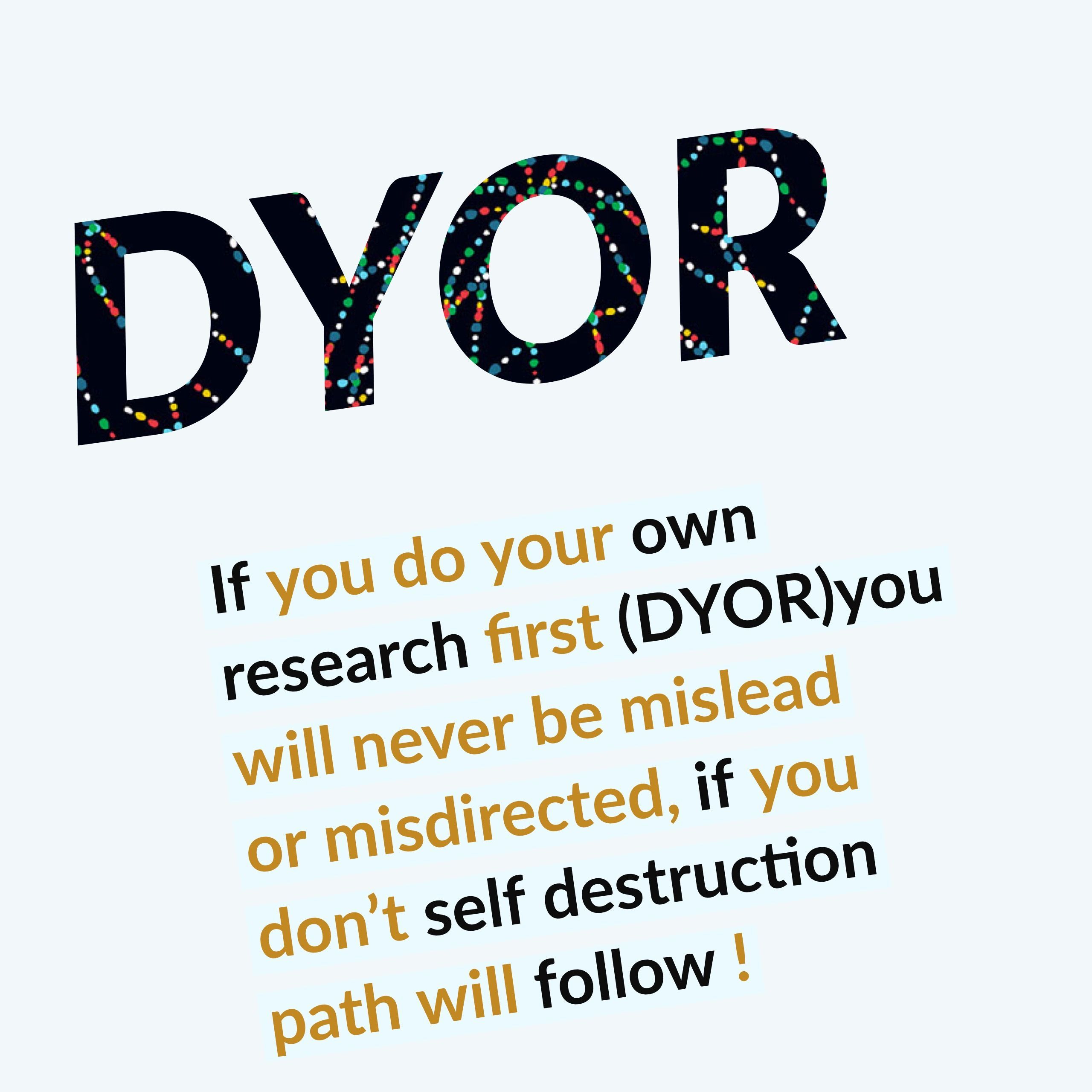DYOR (DO YOUR OWN RESEARCH)- JUSTIFIED OR MISUSED ?

D cryptocurrency world is littered with buzzwords and acronyms if nothing else. DYOR is one of them and it takes the spotlight in this article because investors either: A. Have not recognized that there are different methods for conducting a research or B. Have their own interpretation of what constitutes a research
-Exhibit A: “I have $x, what coin/token should I invest in?
-Exhibit B: “Is this coin/token useful?
Exhibit A and B are often met with the same response “DYOR”. I hate to pop the bubble but asking a question is researching and is categorized as an ‘opinion based research method’
Asking questions about a coin/token to gather information from the public may not be some people’s preference but nothing is wrong with it; unless they are explicitly interpreting it as financial advice
Reading white papers, glancing LinkedIn profiles and browsing websites are all methods of researching BUT asking questions based on the ‘noise’ surrounding a coin/token is a method as well. It should yield: The purpose of the coin, the team, the objectives, etc. Keep in mind as well that no research method is fool proof either; it can be debatable as to which is more accurate but none is a guarantee
For every person that asks “Have you read the white paper?”. You can bet your bottom dollar that majority of them just skimmed through. So, where did they gain the confidence to suggests that the white paper is gospel?
For every person that says “This is a great team”. They are only reading past accomplishments and keep in mind that great individuals don’t always make a great team. So how could anyone arrive at this conclusion?
For every person that says “Great tech”. Majority of them couldn’t execute “Hello World” in JavaScript. So how did they arrive at this conclusion?
For every person that says “The team has experience”. Experience with what? If it’s still very early days in the crypto world in terms of tech then does experience really matter? The past also dictates that people who have minimal experience generally rise to the very top in tech: Bill Gates, Elon Musk, Steve Jobs, Mark Zuckerberg, Jeff Bezos didn’t work for a decade/decades at a fortune 500 company before making their impact. So, how can you guarantee that a CISCO executive with ten (10) years plus experience will execute better than the guy sitting in a small room in Italy?
Finally, the big one — If you read the whitepaper, researched the team, read their website and had a one on one conversation with the founder but found out you were the “only” person supporting the project would you put your money there? If the answer is no, then your research is at least in some sense based on exactly the same philosophy as someone asking a question (the majority’s perception). So, the next time someone says “I have $x, what coin/token should I invest in?” or “Is this coin/token useful?” remember that this is the method of research they chose. You don’t have to agree with it, but respect it. In other words, “DYOR” is misused.....
for more info about ..what to look in crypto projects or ico follow this post https://steemit.com/ico/@cryptoboiiii/what-to-look-in-ceyptocurrency-project